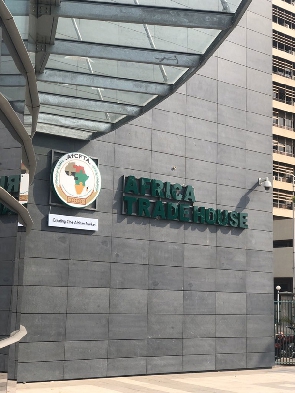The African Continental Free Trade Area (AfCFTA) Secretariat is now targeting January 2021 for the commencement of the implementation of the pan African free trade agreement following its postponement due to the outbreak of the Coronavirus pandemic.
According to the AfCFTA Secretary-General, Wamkele Mene, it is imperative for member countries to conclude negotiations on trade tariffs and other protocols under the AfCFTA within the next six months.
The Secretariat has insisted that it is only the next scheduled Summit – an Ordinary Session of the Assembly of Heads of States – which falls on 2nd January, 2021, that can pave way for its implementation.
The Summit is expected to approve phase one operational instruments which will then pave way for start of duty-free trading.
Phase one operational instruments include Rules of Origin, which will determine the eligibility of goods to be traded under AfCFTA; modalities such as protection of infant industries; and an online negotiating forum to enable member States to spearhead the success of the policy.
The remaining are an online mechanism for monitoring and eliminating non-tariff barriers; an AfCFTA mobile application for businesses including digital payments system for goods and services; a Pan-African payment and settlement system; and dashboard of the AU Trade Observatory, all of which are expected to enhance the implementation of the agreement.
The implementation of AfCFTA will require Member Countries to liberalize at least 97 per cent of their tariff lines and 90 per cent of imports.
As the pandemic currently rages on, AfCFTA Secretariat has directed member countries to allow zero duties on 40 specific goods such as soap, disinfectant and personal protective equipment (PPEs) among others that would help curb the virus.
The continental free-trade area would be the world’s largest economic free trade zone, adjudged by spatial size and population, and is expected to increase intra-African trade from the current 12 per cent of total trade by African countries, to 52 per cent by 2023.
However, trade experts have indicated that should the pandemic rage on for much longer, the anticipated 52 per cent target may not be achieved within the set period.
COVID-19 IMPACT
The COVID-19 global health emergency has led to an unprecedented global economic slowdown, with many anticipating a post-COVID-19 global recession.
For instance, the World Trade Organization (WTO) estimates that world merchandise trade could fall by between 12 per cent and 32 per cent this year. The United Nations Conference on Trade and Development (UNCTAD) also projects that global Foreign Direct Investment inflows will decline by up to 40 per cent in 2020, reaching their lowest level in two decades.
According to a COVID-19 Business Survey conducted by the International Trade Centre (ITC), one in four Micro, Small and Medium-sized Enterprises (MSMEs) reports being at risk of shutting down permanently within the next three months.
“Taken together, these threats to global trade, investment, growth, and employment risk are derailing progress towards the UN Sustainable Development Goals”, ITC states.
Business News of Monday, 6 July 2020
Source: goldstreetbusiness.com









![Sulley Muntari [L] and Michael Essien Sulley Muntari [L] and Michael Essien](https://cdn.ghanaweb.com/imagelib/pics/861/86144189.295.jpg)







